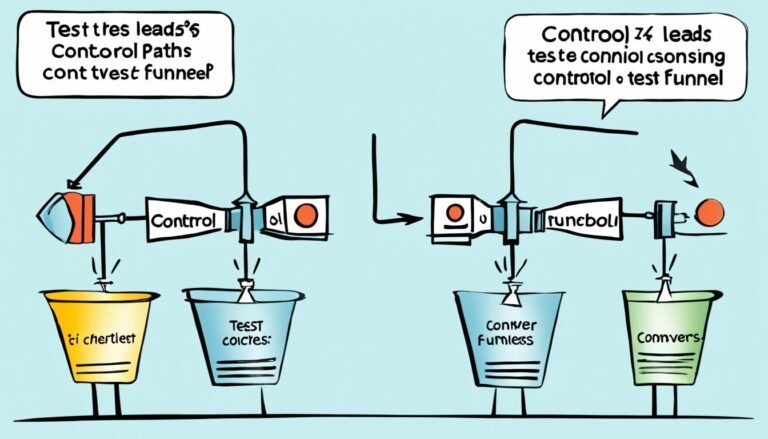Maximize Sales with Customer Commitment Strategies
Customer commitment strategies play a crucial role in driving sales and fostering long-term customer loyalty. These strategies focus on creating positive customer experiences, retaining customers, and building strong relationships. By implementing effective customer commitment strategies, businesses can maximize sales and drive repeat business. In this article, we will explore various strategies and tactics that can help businesses build customer loyalty and improve sales performance.
Key Takeaways:
- Customer commitment strategies are essential for maximizing sales and fostering long-term customer loyalty.
- These strategies focus on creating positive customer experiences, retaining customers, and building strong relationships.
- Effective customer commitment strategies can drive repeat business and increase customer lifetime value.
- Implementing customer feedback, investing in employee satisfaction, and leveraging word-of-mouth advertising are key components of successful customer commitment strategies.
- Understanding the competition and implementing effective sales strategies are crucial for driving customer commitment and improving sales performance.
The Importance of Customer Experience Management in Sales
Customer experience management (CXM) plays a critical role in effective customer commitment strategies in sales. By prioritizing positive customer experiences, businesses can build strong customer relationships, enhance their reputation, and drive sales growth. CXM involves understanding and meeting customer needs, collecting feedback, and continuously improving the customer journey.
Implementing CXM enables businesses to:
- Improve customer retention
- Increase customer loyalty
- Boost repeat business
- Enhance brand reputation
CXM allows businesses to gain valuable insights into customer preferences, pain points, and expectations. By aligning their sales efforts with these insights, businesses can deliver personalized experiences that resonate with customers, increasing their commitment and driving sales.
“Effective customer commitment in sales requires a holistic approach that encompasses every touchpoint of the customer journey.”
Implementing Effective Customer Retention Strategies
To effectively implement customer commitment in sales, businesses should focus on the following customer retention strategies:
- Personalization: Tailor the sales experience to meet individual customer needs and preferences. By understanding customer preferences, businesses can provide personalized recommendations, offers, and support.
- Proactive Communication: Stay connected with customers through various communication channels, such as emails, phone calls, and social media. Proactively address any concerns or questions and provide regular updates to build trust.
- Exceptional Customer Service: Provide exceptional customer service consistently. Respond promptly to inquiries, resolve issues efficiently, and go above and beyond to exceed customer expectations.
- Continuous Improvement: Continuously gather customer feedback and analyze it to identify areas for improvement. Use the insights to refine products, services, and sales processes, ensuring ongoing customer satisfaction.
By implementing these customer retention strategies, businesses can solidify their customer commitment, foster long-term relationships, and drive sales growth.
Next, let’s explore the benefits of customer retention over customer acquisition.
| Benefits of Customer Experience Management in Sales | Benefits of Customer Retention Strategies | Effective Customer Commitment in Sales |
|---|---|---|
| Enhanced customer satisfaction | Reduced customer churn | Increased customer loyalty |
| Positive brand reputation | Higher customer lifetime value | Repeat business and referrals |
| Improved customer loyalty | Cost-effective compared to acquisition | Stronger customer relationships |
Benefits of Customer Retention Over Acquisition
When it comes to maximizing sales, customer retention is a strategy that businesses cannot afford to overlook. Not only is it a cost-effective approach compared to acquiring new customers, but it also has several other significant benefits. By focusing on retaining customers in sales, businesses can reduce churn, increase customer lifetime value, and ultimately drive higher sales and revenue.
One of the main advantages of customer retention is that loyal customers tend to spend more. They have already established a level of trust with the business and are more likely to make repeat purchases. According to research, acquiring new customers can cost five times more than retaining existing ones. By nurturing and maintaining relationships with current customers, businesses can save on customer acquisition costs and allocate resources more efficiently.
Moreover, customer retention is closely tied to customer satisfaction. When customers feel valued and supported throughout their journey, they are more likely to remain loyal to a business. By implementing sales approaches that prioritize customer retention, such as personalized follow-ups, loyalty programs, and exceptional support, businesses can enhance customer satisfaction. Satisfied customers are not only more likely to make repeat purchases but also more likely to recommend the business to others, fueling positive word-of-mouth advertising.
“Retaining customers in sales is about building long-term relationships and creating a positive customer experience. Happy customers lead to higher sales, increased customer loyalty, and a strong foundation for sustainable business growth.”
To illustrate the benefits of customer retention, consider the following example:
| Customer Acquisition | Customer Retention |
|---|---|
| Higher marketing and advertising costs | Lower marketing and advertising costs |
| Lower initial sales revenue | Higher initial sales revenue |
| Lower customer lifetime value | Higher customer lifetime value |
| Less customer loyalty | Strong customer loyalty |
As the table suggests, customer retention offers numerous advantages compared to customer acquisition. By investing in strategies that focus on retaining customers, businesses can not only reduce costs but also increase revenue and build a loyal customer base that generates repeat business.
Harnessing the Power of Customer Feedback
Customer feedback plays a pivotal role in improving customer commitment in sales. By actively collecting feedback through customer satisfaction surveys, social media platforms, and other channels, businesses gain valuable insights into customer experiences and preferences. This feedback acts as a compass, guiding businesses towards areas of improvement and necessary changes to enhance the overall customer experience.
One of the key advantages of customer feedback is its ability to uncover hidden pain points and identify opportunities for growth. By carefully analyzing the feedback received, businesses can pinpoint areas where they may be falling short and take proactive measures to address these concerns.
Additionally, customer feedback provides a platform for customers to voice their opinions and feel heard. Actively listening to customers and incorporating their suggestions demonstrates a genuine commitment to their satisfaction, fostering a stronger relationship and increased customer loyalty.
Improving customer experience (CX) is at the core of leveraging customer feedback. By consistently making improvements based on customer feedback, businesses can enhance their CX strategies, ultimately increasing customer satisfaction and driving sales.
“Listening to your customers is not only good for business. It’s good for customer commitment and loyalty.”
By harnessing the power of customer feedback, businesses can:
- Identify customer pain points and areas for improvement.
- Enhance customer satisfaction and loyalty.
- Drive sales through improved customer experience.
Whether it’s gathering feedback on product quality, service interactions, or overall brand perception, customer feedback provides businesses with a wealth of actionable information. It allows them to continuously iterate and evolve their strategies to meet customer expectations and deliver exceptional experiences.
Turning Feedback into Actionable Insights
To make the most of customer feedback, it’s important to have effective processes in place for gathering, analyzing, and acting on the insights provided. This can be achieved through:
- Utilizing customer satisfaction surveys to gather structured feedback.
- Monitoring and engaging with customers on social media platforms.
- Implementing customer feedback management systems to streamline data collection and analysis.
- Conducting regular sentiment analysis to identify trends and patterns.
By transforming customer feedback into actionable insights, businesses can stay ahead of the curve, meet customer expectations, and continuously improve the customer experience.
The Role of Employee Satisfaction in Customer Commitment
Employee satisfaction is a fundamental component of successful customer commitment strategies. When employees are happy and empowered, they are more likely to provide exceptional customer service, resulting in positive customer experiences that foster loyalty.
Investing in employee training and providing clear guidelines equips frontline employees with the necessary tools and resources to deliver outstanding customer service. Happy employees tend to be motivated, engaged, and eager to go the extra mile to ensure customer satisfaction.
Empowered employees are confident in making decisions that benefit the customer, leading to prompt issue resolution and personalized assistance. This level of autonomy contributes to a more positive interaction between employees and customers, further strengthening customer commitment.
“When employees feel valued and supported, they are more likely to go above and beyond to meet customers’ needs while representing the company’s commitment to exceptional service,” says Sarah Johnson, a customer service manager at ABC Company.
Benefits of Employee Satisfaction in Sales:
- Improved customer satisfaction and loyalty
- Enhanced customer experience through personalized assistance
- Prompt issue resolution and effective problem-solving
- Inspired and motivated employees
- Positive word-of-mouth promotion
Creating a work environment that prioritizes employee satisfaction is essential for strong customer commitment strategies. By nurturing a culture of empowerment and investing in employee development, organizations can ensure that their sales teams are engaged, satisfied, and motivated to deliver exceptional customer service.
Leveraging Word-of-Mouth Advertising for Customer Commitment
Word-of-mouth advertising is a powerful tool for customer commitment in sales. When customers have positive experiences with a business, they often share their satisfaction with friends and family, leading to free advertising and increased brand credibility.
One effective way to leverage word-of-mouth advertising is by encouraging customer referrals. Satisfied customers are more likely to recommend a business to others, which can result in new customers and increased sales. By providing exceptional customer service and going above and beyond to meet customer needs, businesses can generate positive word-of-mouth and strengthen customer commitment.
| Benefits of Word-of-Mouth Advertising | Examples |
|---|---|
| 1. Increased Trust and Credibility | Customers trust recommendations from friends and family more than traditional advertising. |
| 2. Cost-Effective Marketing | Word-of-mouth advertising is essentially free and can reach a wide audience. |
| 3. Expanded Reach | Positive recommendations can reach new audiences and attract potential customers. |
| 4. Amplified Online Presence | Positive word-of-mouth can lead to increased online reviews and social media mentions. |
Businesses can also harness the power of social media platforms to amplify positive reviews and reach a wider audience. By encouraging customers to share their experiences on social media and providing opportunities for them to easily leave reviews, businesses can strengthen customer commitment and drive sales further.

Resolving Issues to Maintain Customer Commitment
Even with the best customer commitment strategies, organizations may encounter unsatisfied customers and mistakes. However, quickly addressing and rectifying customer issues is crucial for maintaining customer commitment and loyalty. By effectively addressing customer concerns, businesses can minimize negative experiences and drive sales.
Rectifying Customer Mistakes
When a customer discovers a mistake, it’s essential to rectify it promptly to regain their trust and loyalty. By taking ownership of the mistake and offering a sincere apology, businesses can show their commitment to resolving the issue and prioritize customer satisfaction. Empowering customer service representatives to rectify mistakes efficiently ensures a smooth resolution process.
Addressing Customer Concerns
Proactively addressing customer concerns demonstrates a commitment to customer satisfaction and builds trust. Listening actively and empathetically to their concerns allows businesses to understand their perspective and find suitable solutions. Promptly responding to customer inquiries and providing transparent information reassures customers, helping to maintain their commitment to the brand.
CX Management Platforms for Effective Issue Resolution
CX management platforms, such as CRM systems and customer feedback tools, play a pivotal role in efficiently resolving customer issues. These platforms enable businesses to collect and analyze data from across the customer journey, gaining valuable insights into customer concerns and pain points. By leveraging CX management platforms, businesses can identify trends, rectify problems promptly, and provide personalized solutions that address customer needs.
| Benefits of Utilizing CX Management Platforms for Issue Resolution |
|---|
| – Streamlined data collection and analysis |
| – Quick identification of customer concerns and patterns |
| – Efficient problem-solving and resolution |
| – Personalized customer support and tailored solutions |
By utilizing CX management platforms, businesses can effectively address customer concerns, minimize negative experiences, and strengthen customer commitment. Resolving issues promptly and providing exceptional customer service can lead to increased customer loyalty and drive sales growth.
Understanding the Competition for Customer Commitment
When it comes to effective customer commitment in sales, understanding the competition is crucial. By analyzing the strengths and weaknesses of competitors, businesses can identify areas for improvement and differentiate themselves in the market. But how exactly does competitive analysis help drive customer commitment and enhance sales growth?
One key aspect is leveraging customer data and feedback. By collecting and analyzing this valuable information, businesses can gain insights into customer preferences and needs. Armed with this knowledge, they can then tailor their offerings to meet these specific requirements, effectively positioning themselves against the competition.
For example, if a competitor offers a product feature that customers highly value, a company can identify this preference through customer feedback and strive to incorporate a similar feature in their own offering. This strategic approach ensures that customer preferences are met, giving the business an edge over competitors and fostering customer commitment.
Moreover, understanding the competitive landscape helps businesses benchmark their own performance and identify areas of improvement. By closely examining successful competitors, companies can learn from their strategies and implement similar tactics to enhance their customer commitment efforts.
To illustrate the benefits of understanding the competition for customer commitment, consider the following scenario:
“Company XYZ analyzed the market and identified a gap in the delivery speed of their competitors. Understanding that customers highly valued timely deliveries, they revamped their logistics and supply chain operations, significantly reducing delivery times. As a result, they gained a competitive advantage, attracting new customers and fostering stronger commitment from existing ones.”
By continuously monitoring the competition and adapting their strategies, businesses can position themselves as leaders in the market, offering superior customer commitment and driving sales growth.
Benefits of Understanding the Competition:
- Identify areas for improvement
- Differentiate from competitors
- Tailor offerings to customer preferences
- Benchmark performance against successful competitors
- Gain a competitive advantage
In conclusion, understanding the competition is vital for effective customer commitment in sales. By leveraging customer data, tailoring offerings, and benchmarking performance, businesses can differentiate themselves, meet customer preferences, and drive sales growth. Stay ahead of the game by keeping a close eye on what your competitors are doing and continuously improving your customer commitment strategies.
Implementing Effective Sales Strategies for Customer Commitment
When it comes to fostering customer commitment, implementing effective sales strategies is crucial. These strategies not only drive customer loyalty but also help businesses increase sales and revenue. By aligning sales efforts with customer commitment goals, businesses can create a positive sales experience that leaves customers feeling valued and supported throughout their journey.
Targeted Marketing Campaigns
One of the key sales strategies for driving customer commitment is through targeted marketing campaigns. By understanding customer preferences and purchasing behavior, businesses can tailor their marketing messages to resonate with their target audience. Personalized and targeted marketing campaigns not only capture the attention of potential customers but also show that the business understands their needs and desires.
Personalized Sales Approaches
To deepen customer commitment, businesses should adopt personalized sales approaches. By taking the time to understand each customer’s unique needs and preferences, sales representatives can provide tailored recommendations and solutions. This personalized approach makes customers feel valued and appreciated, increasing their trust and commitment to the business.
Upselling and Cross-selling
Upselling and cross-selling techniques can also be effective sales strategies for customer commitment. By offering customers additional products or services that complement their initial purchase, businesses can enhance the value they provide. This not only increases sales but also demonstrates that the business is committed to meeting all of the customer’s needs.
Ongoing Customer Support
Providing exceptional ongoing customer support is another essential sales strategy for driving customer commitment. When customers encounter issues or have questions, prompt and helpful support can make a significant difference. This not only resolves customer concerns but also shows the business’s dedication to ensuring a positive customer experience.
“Effective sales strategies play a crucial role in driving customer commitment. By utilizing targeted marketing campaigns, personalized sales approaches, upselling and cross-selling techniques, and offering ongoing customer support, businesses can create a positive sales experience that fosters long-term customer loyalty.”
Implementing these sales strategies can help businesses drive customer commitment and increase sales. By focusing on building strong relationships with customers through personalized approaches and ongoing support, businesses can create a loyal customer base that generates repeat business and positive word-of-mouth advertising.
Conclusion
Customer commitment is key to maximizing sales and fostering long-term customer loyalty. By implementing effective strategies, businesses can retain customers, increase repeat business, and drive overall sales growth. Throughout this article, we have explored various customer commitment strategies that businesses can employ to achieve these goals.
Firstly, customer experience management plays a crucial role in driving customer commitment. By understanding and meeting customer needs, collecting feedback, and continuously improving the customer journey, businesses can enhance customer satisfaction and loyalty.
Secondly, customer retention is more cost-effective than acquiring new customers. By prioritizing personalized follow-ups, loyalty programs, and exceptional support, businesses can reduce churn and increase customer lifetime value.
Additionally, employee satisfaction is vital in creating positive customer experiences. By investing in training, providing clear guidelines, and empowering frontline employees, businesses can improve customer satisfaction and loyalty.
Word-of-mouth advertising is another powerful tool for customer commitment. Encouraging customer referrals and providing exceptional customer service can lead to positive reviews and free advertising for the business.
Resolving customer issues promptly is crucial for maintaining customer commitment. By utilizing CX management platforms and effectively addressing customer concerns, businesses can retain customer loyalty while minimizing negative experiences.
An understanding of the competition is essential for effective customer commitment. By analyzing competitors’ strengths and weaknesses, businesses can differentiate themselves and align offerings with customer preferences.
Lastly, implementing targeted marketing campaigns, personalized sales approaches, and ongoing customer support are key to driving customer loyalty and increasing sales.
By prioritizing customer commitment and continuously improving the customer experience, businesses can build strong customer relationships and achieve sustainable sales success.







